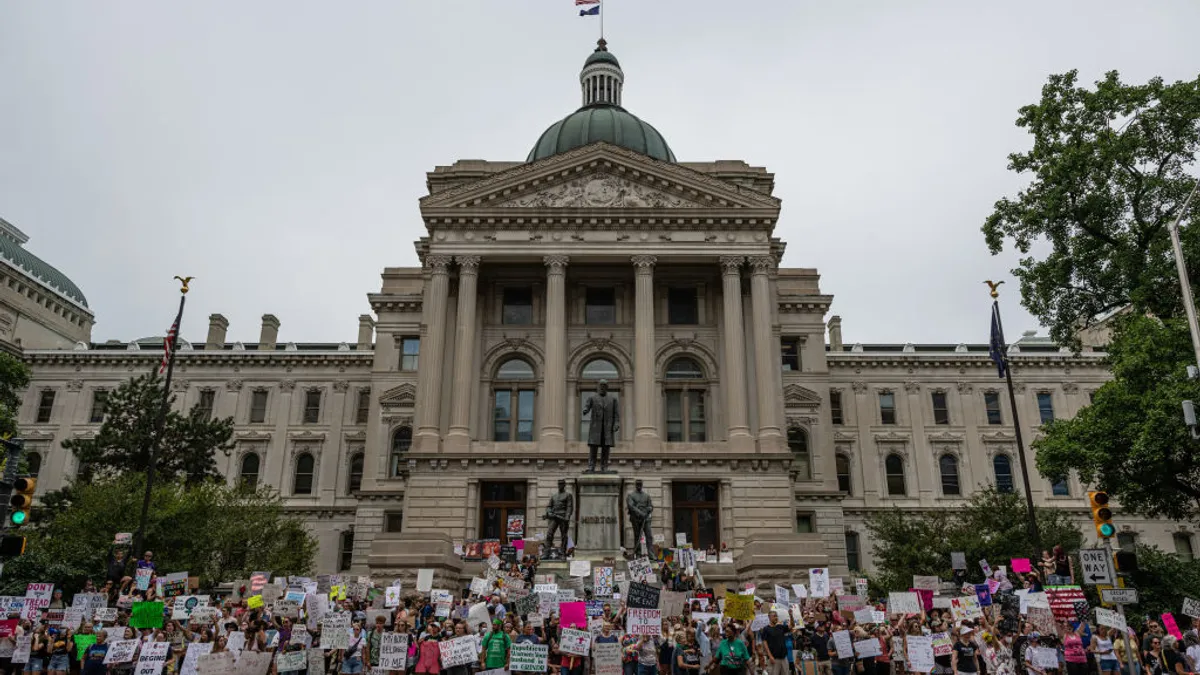In HR Dive’s Mailbag series, we answer HR professionals’ questions about all things work. Have a question? Send it to [email protected].
Q: What are SHRM’s best practices for workplace political debates ahead of the 2022 midterms?
A: SAN DIEGO — “Don’t talk politics or religion” may have been the old rule of thumb, but it’s 2022. U.S. workers are living in a post-President Donald Trump world, where protests, social media and political communications of all kinds have played an integral role in identity-building and polarization. An October 2022 report from the Society for Human Resource Management suggests that 45% of U.S. workers have personally engaged in political disagreements at work, up 3% from 2019.
Additionally, 20% of respondents told SHRM that “there is greater political volatility at work than there was three years ago.”
The problem, according to SHRM Chief Knowledge Officer Alexander Alonso, is that people often are not engaging in conversation to understand their co-workers better. “Their goal is to win,” he told HR Dive.
Still, completely ruling out political discussions at work isn’t necessary. Instead, leadership should reframe employees’ desires for discourse in terms of workplace productivity. SHRM’s chief knowledge officer referred to it as the “me, we, work” model.
“When you look at the cognition around these types of discussions, a person will always think about, ‘How do I look to others?’ ‘How am I actually performing when others are judging me?’ They never make the leap to ‘How do I and the other person that's disagreeing with me look?’ And ‘How does that relate to how we're going to achieve our work outcomes, in the future?” Alonso explained.
For context, an October 2022 SHRM report suggests that 1 in 4 U.S. workers have “personally experienced political affiliation bias,” either positively or negatively. That’s twice the rate of workers in 2019, researchers said.
Alonso clarified that the work outcomes include everything from deliverables to performance reviews, raises and promotions. Encouraging employees to consider their professional life cycle when engaging in political debates makes the conversation much more productive, he said. “It puts the ball in the individual’s court,” he added.
Over the past four to five years, SHRM researchers have uncovered a number of polarizing topics that are indirectly political. COVID-19 and the Johnny Depp-Amber Heard defamation trials have been hot topics. Regarding electoral politics, the way each presidential administration addresses the U.S. economy and foreign affairs are top of mind. Employers may be dealing with political talk regularly — but positive communication can keep discussions healthy.













